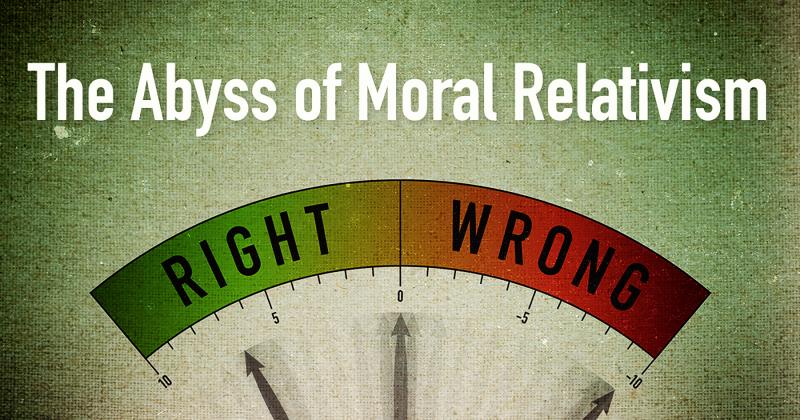
Complimentary Story
Not long ago, it was considered gauche on college campuses to provide comparisons to Hitler. Students would shout, “Godwin’s Law!” and cancel the conversation like an insufficiently woke Instagram influencer. But in the era of President Trump, which some would have you believe has ushered the Third Reich into the fifty states, politically liberal students have suddenly found renewed interest in comparing modern affairs to Nazi practice. For them, however, this is a double-edged sword. For, when the topic of Nazism arises on campus, a question quickly follows many cannot answer — a question of morality.Shared Experience
Morality is inescapable. Spend a few moments around toddlers clinging to toys with shouts of “Mine!” and you’ll recognize that some concepts like justice, though perhaps not selflessness, seem to be hard-wired into us.
No one, it seems, is immune to thinking morally. When someone cuts us off in traffic or avoids sending payment on Venmo, we apprehend injustice.
But how we process that sense of injustice sharply divides us. There are moral realists — those who believe the injustice is just that, a veritable violation of an objective moral principle. And there are anti-realists, who deny that such principles exist.
For the realist, morals are not fabricated by humankind. We discover them. We do not create them.
The anti-realist rejects this. For her, the sense of injustice does not point to any objective moral principle. Rather, it’s a subjective experience not unlike the discomfort of digesting greasy fast food.
For the anti-realist, then, moral principles are sort of like Hobbits. They may amuse us. They may even give us ideas of how we want to live our lives. But they’re not real.
Different Answers
When faced with an abhorrent crime, both the realist and anti-realist may recoil. But they will disagree on why they do so.
Recently, I was chatting with students in favor of abortion at Bowling Green State University during Created Equal’s campus outreach. My goal was to find common ground to lead into meaningful dialogue on abortion. I thus asked whether it would be wrong for someone to abuse a toddler. If, after all, one condemns harming a young human after birth, we are close to agreeing it would also be wrong to harm the same human when she’s younger, prior to birth.
One student was quick to condemn abuse of toddlers, but then she added: “Those are our morals.”
The implication was clear. We may not like abusing kids, but the action violates no real moral principle. Everyone makes up their own morality. The others seemed to agree.
I decided to test their commitment to moral anti-realism. So I transitioned to discussing Nazis. Not only is the topic no longer off limits, as previously mentioned, but the Holocaust is virtually universally condemned as reprehensible.
“Could you say it was wrong for the Nazis to kill Jewish people?” I asked.
The response was awkward. Some students reached for their phones. Others looked around uncomfortably. One deflected, saying, “I have a question.”
But no one responded affirmatively.
I asked again, “Will you condemn Nazism?”
At this point, one student said, “I can tell you what you’re doing is wrong.”
Here I had stumbled on the moral reasoning of our age: We cannot categorically condemn gassing Jewish people, but we can tell a man talking about morality that he is wrong.
Somewhere Between Head and Heart
Why were they incapable of, or unwilling to, categorically condemn Nazism? They were caught between their worldview and what they perceived to be true.
Regardless of our moral perspective, the Holocaust deeply disturbs us. We’ve seen photos and video of emaciated bodies. We’ve read horror stories of experimentation, of dividing families and shoveling people into ovens.
No one can — or at least no one should — look at that and shout, “Yes! That is good!”
But, for those who reject objective morals, this is an awkward situation. They want to condemn Nazism. They want to throw against it all the moral indignation of a fire-and-brimstone street preacher.
But then they remember: Morals do not exist.
To say, “Yes, genocide is objectively immoral” would be to violate intellectual commitments of their worldview. But to say, “No, genocide is fine” would be to trample their own deeply seated moral intuitions.
And so they could not answer. They could deflect or ignore, but they could not respond directly to the question.
Tragedy to Opportunity
This is a great tragedy for the modern student, but it is also an opportunity for the human rights defender.
To be trapped in a battle between instincts of the heart and commitments of the intellect brings existential crisis. But there is no such crisis for those living in light of truth. We perceive injustice and have reason to categorically condemn it — because we understand moral principles are real.
Therein lies our opportunity. As we engage with abortion defenders today, we should ask questions they cannot answer, but we should not stop there. We must also then provide a better answer and better worldview where head and heart are not in conflict.
This is how we not only lead them to moral truth on abortion but also the truth — the truth of Who God is and who they are. This truth not only relieves existential crisis. It truly sets us free.
CreatedEqual.org



